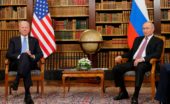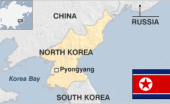Re Ian Bremmer 'Could third-party candidates upend the 2024 US election?' 3 April The current political movement in the USA…
Wednesday Night #1668
Written by Diana Thebaud Nicholson // February 19, 2014 // Wednesday Nights // Comments Off on Wednesday Night #1668
Mavis Gallant has died at the age of 91. The avalanche of tributes has already started, however we would recommend Alan Hustak‘s charming 2009 tribute to her: Gallant Woman.
According to our research, the year 1668 is best known as the year in which the world’s oldest central bank, Sveriges Riksbank, was established.That would be the same Sveriges Riksbank that in 1968 established the Nobel Prize in Economic Sciences. Now, almost 50 years later, in a Wall Street Journal article (Central Banks Walk Policy Tightrope), the Riksbank says knowledge about the effectiveness of macroprudential policy is still limited. How far we have come – or have we?
Brett House believes that “The 2014 World Economic Forum (WEF) Annual Meetings in Davos, Switzerland, were a testament to the fact that live, in-person interaction is still a necessary complement to remote, decentralized and virtual connections. Titans of business, heads of government and policy mandarins huddle in this remote ski town every year because they know they can accomplish more in a few days clustered in close proximity to each other than they can in months of travel or video conference calls.
In his piece A Canadian Voice at Davos published on the CIGI website, he describes a round of consultations that he organized for CIGI in his capacities of a WEF Young Global Leader and a CIGI senior fellow “with capital markets participants and policy makers on ways in which the world can improve its approach to handling episodes of severe sovereign financial distress. The talks focussed on three sets of potential reforms: initiatives that could dampen the tendency of troubled sovereigns to delay seeking help when they run into financing problems; changes that could ease the resolution of sovereign crises once they break out; and finally, modifications to the international financial architecture that will help to implement sovereign bailouts once terms have been agreed.”
As the debate over Bitcoins continues, Professor Reuven Brenner joins the conversation with Why Bitcoins lack currency to be ‘money’and is seconded by Professor David Yermack (Bitcoin Lacks the Properties of a Real Currency — The digital cash lacks most of the features economists value in a currency).
If these learned discussions fail to convince you, perhaps the news that Silk Road 2.0 was ‘hacked’ for millions will give you reason to continue to put your faith in the coin of the realm.
On the 20th anniversary of NAFTA, the tres amigos are meeting in Toluca, Mexico, but it isn’t a very warm and fuzzy occasion. As the Economist points out: Francisco Suárez Dávila, Mexico’s ambassador to Canada, earlier this month said his country’s relations with Canada were stagnant and that Canada held an Anglo-centric view of the world in which Mexico does not exist. Only Thomas d’Aquino seems to care [Let’s become amigos again] but no-one in Ottawa appears to be listening. We would suggest that is probably because there is nothing in NAFTA that is likely to affect the outcome of the next [2015?] Canadian federal elections. Meantime, Mr. Harper has signed an agreement to expand air travel between Canada and Mexico – this might mean a good deal more if he would act to resolve the nagging visa issue.
While Mr. Harper and President Obama meet with Mexican President Enrique Pena Nieto, back home, the House of Commons is on a week-long constituency break amidst considerable national outcry over several items slipped into last week’s budget bill including the income splitting proposal and the Fair Elections Act. While national disagreement over both of these proposals might have been expected to fuel serious debate in the media, ‘revelations’ about retired General Andrew Leslie’s moving bills [The revealing attack on Andrew Leslie] have taken over whatever space is left from Sochi coverage. We find this a deplorable example of the gotcha politics espoused by political operatives, and worry that the story will likely generate an enquiry that could result in yet another cut to a well-earned veterans benefit that is open to all members of the Canadian Forces or RCMP who have served 20 years or more.
The LPC biennial convention meets in Montreal this week and in the spirit of James Carville/Bill Clinton “[it’s] the economy, stupid”, the Liberal leader has released a video on YouTube highlighting his economic priorities – The clip features sleek cartoon drawings and charts meant to illustrate Trudeau’s central point that while Canada is relatively flush, the middle class is tapped out. And it’s clear the focus will be on the challenges facing Canada’s middle class. In our opinion, Mr. Trudeau’s gentle – soporific? – tone is more suited to a children’s bedtime story than the harsh realities of the economy, but perhaps it will be a welcome relief from turgid policy papers.
Maybe there’s a lesson here for Quebec Finance Minister Nicolas Marceau, who will table a budget on Thursday. It would indeed be interesting if he were to use similarly dulcet tones to lull the voters into a sense of false security as the PQ sets the course for the forthcoming election. “The budget will be an opportunity to take stock of the state of public finances and government actions to sustain the economy,” Mr. Marceau said in a press release.
Mr. Marceau has said that the pre-budgetary consultation process yielded several proposals from various sectors of Quebec society to determine the priorities the government intends to adopt in next week’s budget. Several questions were raised with respect to social services, the need for more private investments and the creation of wealth to maintain services. We are sure that is true, but will he share them with us?
Observers suggest that the budget will likely be more of a political statement that will outline the economic perspective which the PQ will use to seek a majority government, and given Monday’s news that the PQ’s popularity jumps; within reach of majority government, poll suggests, it seems inevitable that we will be heading to the polls sooner rather than later.
While Canadians laugh and point fingers at our hapless southern neighbours who are undergoing terrible weather-driven trials, the New York Times and other serious media remind us that A Severe Winter Breaks Budgets as Well as Pipes : Local and state [read provincial] governments … are facing new financial pressures this exceptionally stormy winter, with officials reporting increased spending on overtime, contractors and supplies. It is not limited to the southern U.S. The Globe & Mail reports (Cities running out of cash for snow removal as icy Canadian winter hits hard) that Toronto depleted its entire winter maintenance reserve fund dealing with the massive ice storm that plunged large parts of the city into darkness just days before Christmas.
Instead of indulging in lengthy debates over anthropomorphic (or not) influence over climate change versus global warming, it seems to us far more important to develop all-party national public policies that will help to mitigate the devastation of floods and other natural disasters by investing in an array of tools from investment in infrastructure and early warning systems, to development of coherent insurance policies and widespread training of disaster responders.
The situation in Ukraine is deteriorating Ukraine riot police move in on Kiev protesters after 14 die – as Reuters notes: The riot police moved in hours after Moscow gave Ukraine $2 billion in aid which it had been holding back to demand decisive action to crush the protests. According to Al Jazeera, The rioting on Tuesday began after opposition leaders accused pro-government factions in parliament of dragging their feet on a constitutional reform that would limit presidential powers – a key opposition demand. Within hours of the clashes, the Russian foreign ministry said that the violence was a “direct result of connivance by Western politicians and European structures that have shut their eyes … on the aggressive actions of radical forces”.
In a situation that parallels Ukraine’s, but is far less remarked on by global media, Russia is also flexing its economic muscle in Moldova, a much smaller former Soviet republic that is also eying closer ties with the EU. Moldovan wine ban by Russia is a symptom of a wider divide For a country heavily reliant on such exports to Russia, the decision has had a major impact on producers. Moldova is far from a united country; the breakaway region of Transnistria and the autonomous Gagauzia are predominantly Russian speaking. Here closer ties to the EU are not desired. It is a nationwide divide that is being made worse by other issues, notably the import of natural gas from Russia. Currently the country is largely dependent on imports from Russian firm Gazprom, which controls both the flow of gas and much of the distribution network.
Meanwhile, events in Venezuela are also alarming, though not of the same scale. Not that anyone thought Senor Madero was going to stray far from the Chavez path, but the arrest of the opposition leader on trumped-up charges bodes only ill in a country where the economy is tanking.
For your calendar:
The Centre for the Study of Democratic Citizenship at McGill University is organizing a roundtable on the Fair Elections Act (Bill C-23), co-sponsored by the Institute for Research on Public Policy (IRPP) on Friday, February 21, 2014 at 12:00pm in the ballroom of Thomson House (3650 McTavish Street).
The roundtable participants are: Éric Bélanger (McGill University), André Blais (Université de Montréal), Youri Cormier (Apathy is Boring), Miriam Lapp (Elections Canada), Stephen Maher (Postmedia News), and Leslie Seidle (IRPP).
The roundtable will be streamlined at: https://connect.mcgill.ca/r7fmip91a3e/
Among the number of policy questions to be debated at the Liberal convention opening on Thursday, the leader has launched a topic sure to arouse deep partisan feelings: Schwartz n’est pas le meilleur «smoked meat» à Montréal, selon Justin Trudeau



